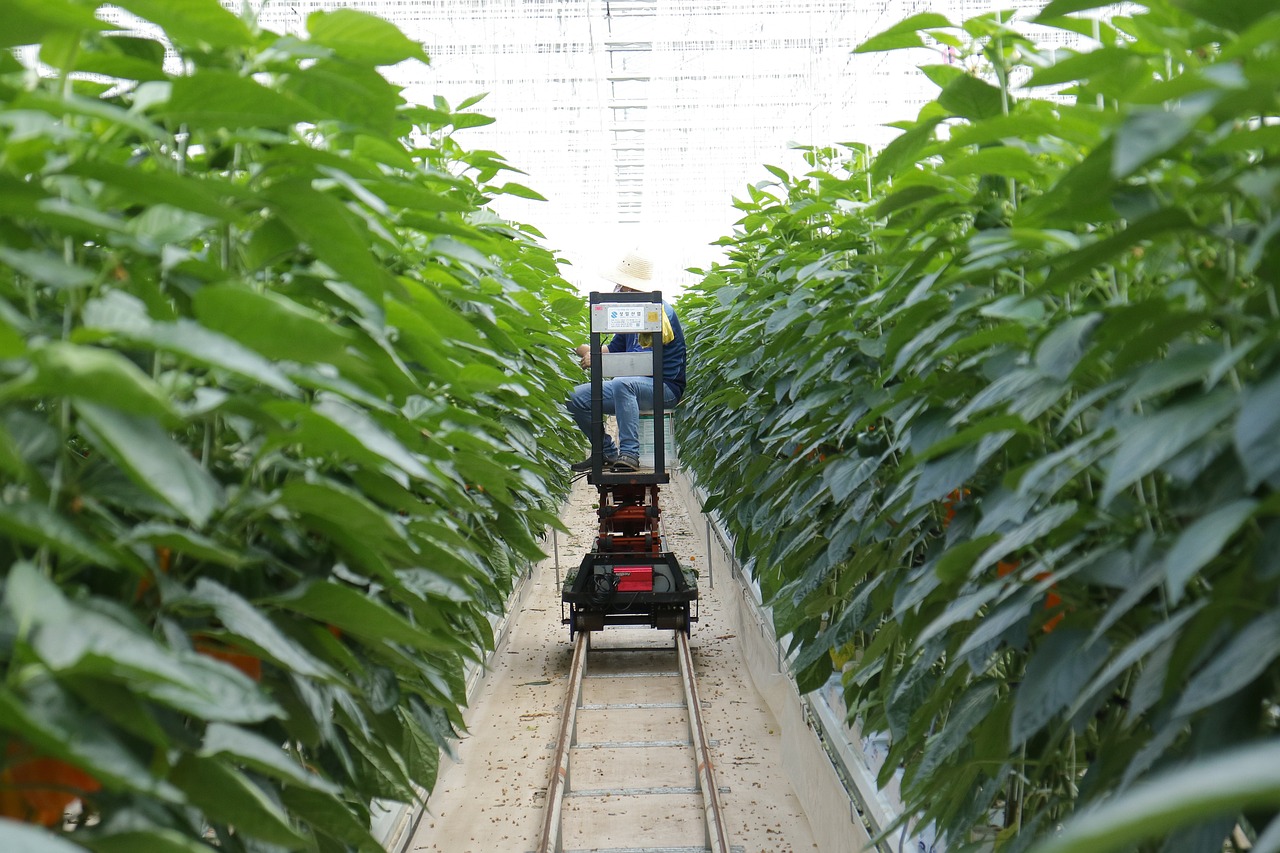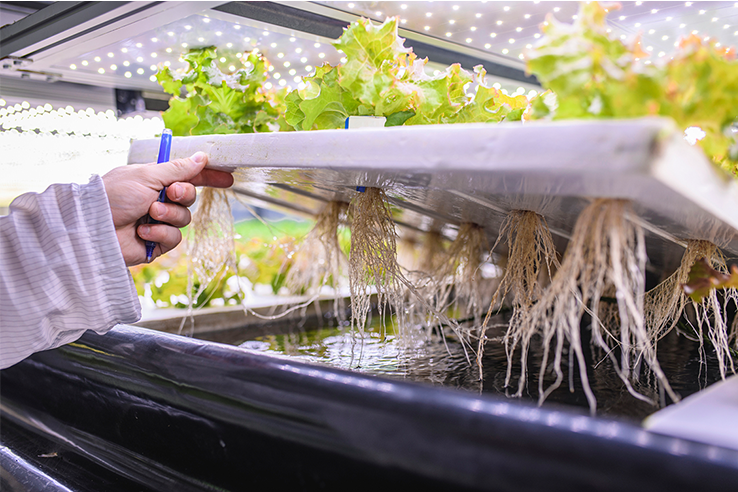
From abandoned tunnel to controlled smart farm
The next time you eat salad greens, you might be surprised to find out that it did not come from a field, but an abandoned tunnel. The company NextOn operates the country’s largest indoor smart farm inside a road tunnel that closed in 2002. While a tunnel may seem like an unconventional site, this 2,300 square meter area is the perfect location for precision farming because its sealed and dark structure makes it easy to maintain the optimal temperature and light conditions for growing. Because it is enclosed, it is easier to control the general air quality and humidity levels while keeping pests out. Repurposing abandoned structures to produce high-quality food is another step in the right direction for sustainable farming.
Ancient practice of farming plants and fish takes a new form
Rural areas offer more space, and that means more room for crops—and even a fishery. A couple of hours south of Seoul in Chungcheongnam-do is a farm that uses organic materials from fish farms to grow crops. Seouchae (서유채) in Taean is an aquaponics farm that grows vegetables in a 1,000 square meter greenhouse.
Aquaponics, a combination of aquaculture and hydroponics, is the practice of using organic materials collected from fish farms to grow crops. While it might seem like a novelty, growing plants without soil has been around for centuries, with its origins tracing back to the Aztecs who harvested crops planted on rafts on the surface of lakes. In modern aquaponics, nutrient-rich aquaculture water is fed to crops, and the water used for cultivating the crops is cleansed and reused at fish farms. Not only is this a remarkably self-sufficient farming ecosystem, these vegetables grown using aquaponics are pesticide and chemical fertilizer-free are known to contain lower nitrogen levels that help them stay fresh longer than conventionally grown produce.

Efficient and expandable modular farming systems
The posh Gangnam district of Seoul may boast brand cafes and shops like Sik Mul Sung Dosan (식물성 도산), but the literal mechanism behind the shop is actually located in nearby suburbs. N THING is an award-winning smart farm company known for their modular smart farm units in nearby Gyeonggi-do and as far as Abu Dhabi in the United Arab Emirates. The company’s flagship product is the N.THING CUBE, the world's first modular vertical farm using containers. This modularized farm system has a dedicated OS that maximizes efficiency and can easily be expanded or changed to meet production needs.
Smart Farm Innovation Valleys foster a new generation of farmers
Conglomerates and private companies are not the only ones to spearhead innovations in smart farming. One of the biggest driving forces behind smart farm expansion is the South Korean government. The Ministry of Agriculture, Food and Rural Affairs (MAFRA) has taken smart farms to a grander scale by building several Smart Farm Innovation Valleys across the nation. Smart Farm Innovation Valleys are agricultural facilities funded by the government to foster young farmers, offer smart farm rentals, and research future agricultural technologies. The first Smart Farm Innovation Valley was built in 2021 in Gimje, Jeollabuk-do. Another complex has now opened in Sangju, Gyeongsangbuk-do, with more facilities in Jeollanam-do and Gyeongsangnam-do underway.
Smart farming is here and now
Smart farming is no longer the future—it is here and here to stay. But that does not mean that there aren’t any challenges ahead. Accommodating and implementing new technologies comes at a price and with a steep learning curve. With that said, the opportunities are indisputable. The automation of various farm operations like planting and harvesting not only reduces resource consumption, labor needs, and overall costs, it creates a more sustainable business and a smaller environmental footprint. In this way, smart farming is both the antidote for the current problem and a solution for the future.
As the agricultural landscape becomes increasingly automated and precise, tractors and other farming machinery continue to evolve alongside these advances. Likewise, the new generation of TYM tractors are maximizing productivity while minimizing human effort by leveraging automation and telematics. To explore the role of TYM tractors across various applications, visit TYM World for an immersive 3D experience.